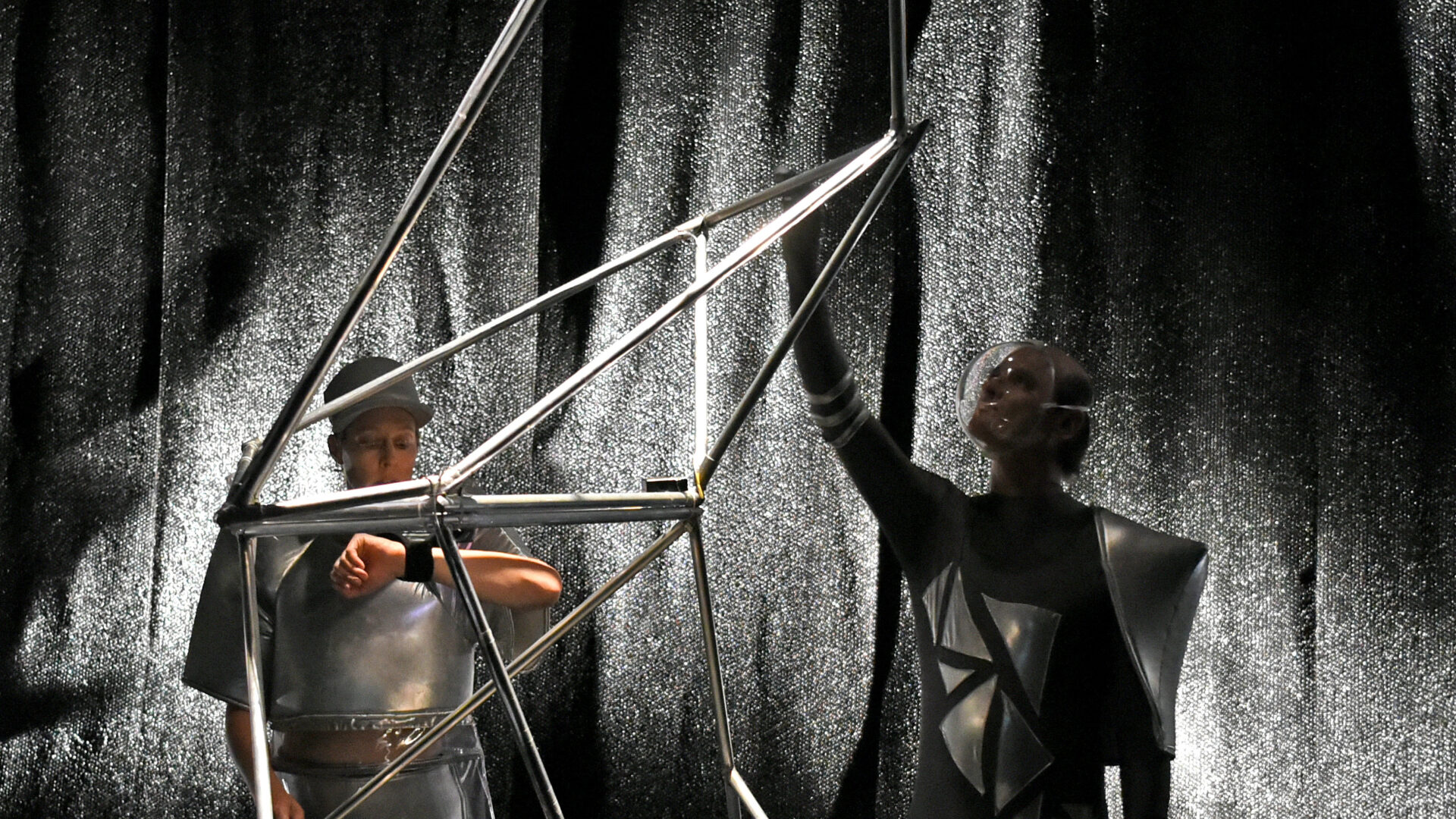SPACE=WOW (BUT I STILL MISS YOU, EARTH)
A Surrealesque of Being and Time by Belma Bešlić-Gál
Musiktheatertage Wien 2017 | Ensemble szene instrumental | Conductor: Wolfgang Hattinger | Werk-X | Vienna, Austria [29/06/2017]
Audio Recording: Belma Bešlić-Gal | Camera: starsky | Video-Editing: Belma Bešlić-Gal
ABOUT
SPACE=WOW (but I still miss you, Earth) is a commissioned work that was given last year to the lyricist Christoph Szalay and the composer Belma Bešlić-Gál. Together, the artists developed a delicate fabric of text and sound that chooses the Mars mission scheduled for the year 2035 as a starting point to address planet Earth and its inhabitants. The project is implemented by the ensemble szene instrumental under the direction of Wolfgang Hattinger.
In 1830 Wilhelm Beer and Johann Heinrich Mädler produced the first map of Mars, which was preceded by observations of the Martian surface. By 2035 the first manned mission to Mars is expected to be launched. The starting point for this is the NASA Authorization Act passed under the Obama administration in 2010 and the provisions in the U.S. National Space Policy; distances are to be overcomed and places reached that were previously mainly the stuff of sci-fi fantasies. At the same time, the Mars mission addresses socio-political and existential questions and touches on the human imagination: How do we want to live and where?
Christoph Szalay shrewdly moves away from planet Earth to return the focus precisely there: His (as any) engagement with space is also an engagement with Earth: the journey to Mars sheds light on concepts that need to be constantly renegotiated – what does nation mean, what does territory mean, what does migration mean, what are economic resources, who has them? Exposed spits of land / allow / to walk / across the water / or / were they / boats / borders / transit routes / six hundred dinars for a crossing / from coast to coast (Szalay, SPACE=WOW).
In the fundamental socio-political questions, the experience of beauty remains a trace that touches and challenges to an aesthetic response, to shaping and forming, perhaps even to a moral life (it would be nice), an experience anyway that is described by astronauts and cosmonauts as overwhelming, “when we look at the Earth from space, we see this amazing, indescribable beautiful planet that looks like a living, breathing organism, at the same time it also appears extremely fragile” (Ron Garan, Shuttle/ISS Astronaut, in: Overview. 2012). It is precisely this shift in perception triggered by the expedition into deep space, which is aimed not only at economic and political systems, but also at a new view of the world: a new understanding of the world, that is the scandalon that Christoph Szalay allowed himself to be aesthetically challenged by.
The lyrically structured text is almost continuously accompanied by quotations ( literally), which define the frame of reference, open up arcs of tension, expose ideologies of domination played out directly or through the margins, and have loose ends that are hammered into the textual fabric. In the process, the heroic gesture of heroic epics and founding myths that legitimize conquest and subjugation in terms of power is subtly deconstructed, as is the pathos in accounts of missions into space, so say / heroes / heroes / celestials / call me / Gagarin / Leonov / Dzhanibekov / Farrell / Shepard / Aldrin / Armstrong – and also the grand gesture, which seems to be self-evident in the sci-fi context, is delicately targeted, build yourself a sky palace / one that will last / for decades / one that is part of, a narrative / that reaches further than your understanding of / father / mother / brother / country.
Tuzla-born composer Belma Bešlić-Gál, whose compositional work obsessively explores the effects of space exploration on our perception and self-understanding, has crafted a composition guided by a fascination with the vast, the unreachable and the spherical.
The performance space becomes a surreal place where the ensemble hierarchy is dissolved and instrumentalists, conductor and singer act as equal actors, travelers through space-time. Sound sources of all kinds are hidden and form a symbiosis with the space and the bodies present, with language, with light. Thereby an organic unity of sound space, darkness and being emerges, which raises questions and moves to reflection.
The journey of several months through darkness to Mars, this celestial neighbor without life, is – composer and author agree – a surreal journey to oneself. Arriving, according to Belma Bešlić-Gál, is not possible, there are only stopovers. We are travelers from unknown to unknown: Existential Not-Knowing/Understanding, Not-Knowing/Comprehending, which is in all our knowledge, becomes the impulse. Who are we? Why? Where are we heading?
Birgit Pölzl, 2017


DATA
Duration: ca. 70‘
Instrumentation: Ensemble [Flute/Bass Flute [1 player], Trombone, Percussion [Woodblock, Claves, Guiro, Castanets, Bass Slit Drum (preferably D-pent., 8-tone), Vibraslap, Vibraphone, Bass Drum, Tam-Tam], Accordion, Violin, Viola, Violoncello], Actors, singer (4 persons – 2 male, 2 female), (1 x Actor/Speaker, 1 x Actress, 1 x Actress/Singer, 1 x Actor), AI computer voice (Artificial Intelligence), 10 CH Electronics (from tape), Light, Video, Stage design, Costume design, Technology
TEXT: Christoph Szalay
COMPOSITION: Belma Bešlić-Gál
ENSEMBLE: scene instrumental
Stage design – Sophia PROFANTER
Musical direction – Wolfgang HATTINGER
Ensemble: Elisa Azzará [Flute], Jevgenijs Cepoveckis [Violin], Anna Sabelfeld [Viola], Esteban Belinchón [Violoncello], Kevin Fairbairn [Trombone], Grilli Pollheimer [Percussion], Ivan Trenev [Accordion], Ninja Reichert [Actress/Singer], Alice Peterhans, Wolfgang Hattinger, Christoph Szalay [Actors/Performers]
A production of scene instrumental in co-production with Kulturzentrum bei den Minoriten, Graz; with the kind support of Bundeskanzleramt Kunst und Kultur, Steiermark Kultur and Graz Culture
List of performances
Ensemble szene instrumental | Conductor: Wolfgang Hattinger | Kulturzentrum bei den Minoriten | Graz, Austria [16/05/2017]
Musiktheatertage Wien 2017 | Ensemble szene instrumental | Conductor: Wolfgang Hattinger | Werk-X | Vienna, Austria [29/06/2017]
Photo Gallery
Musiktheatertage Wien 2017 | Ensemble szene instrumental | Conductor: Wolfgang Hattinger | Werk-X | Vienna, Austria [29/06/2017]
Photo Credits: Nick Mangafas
